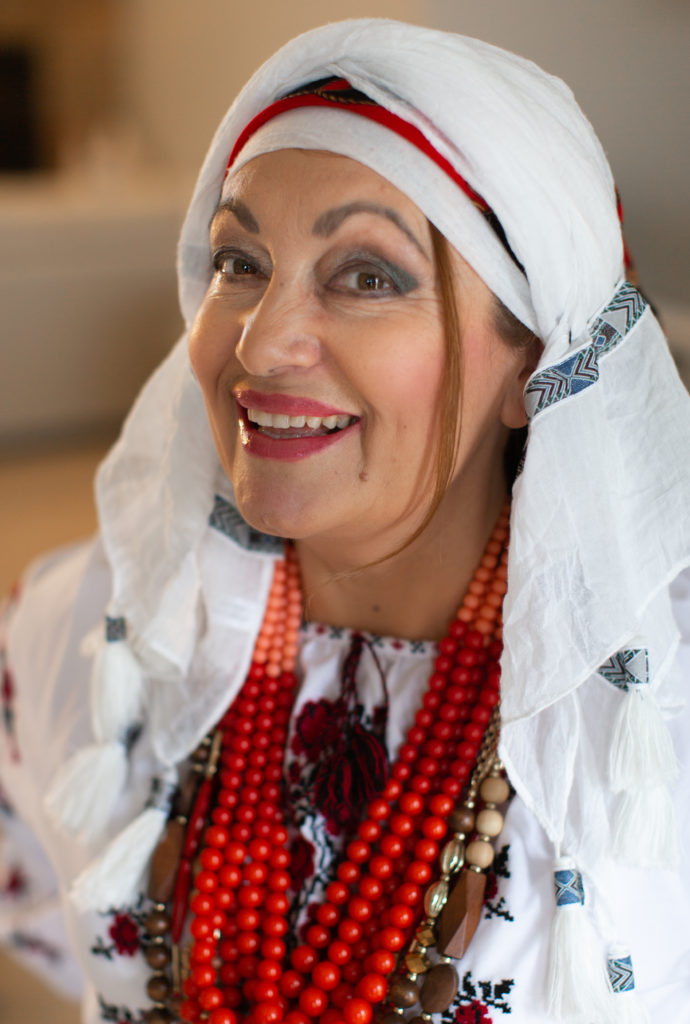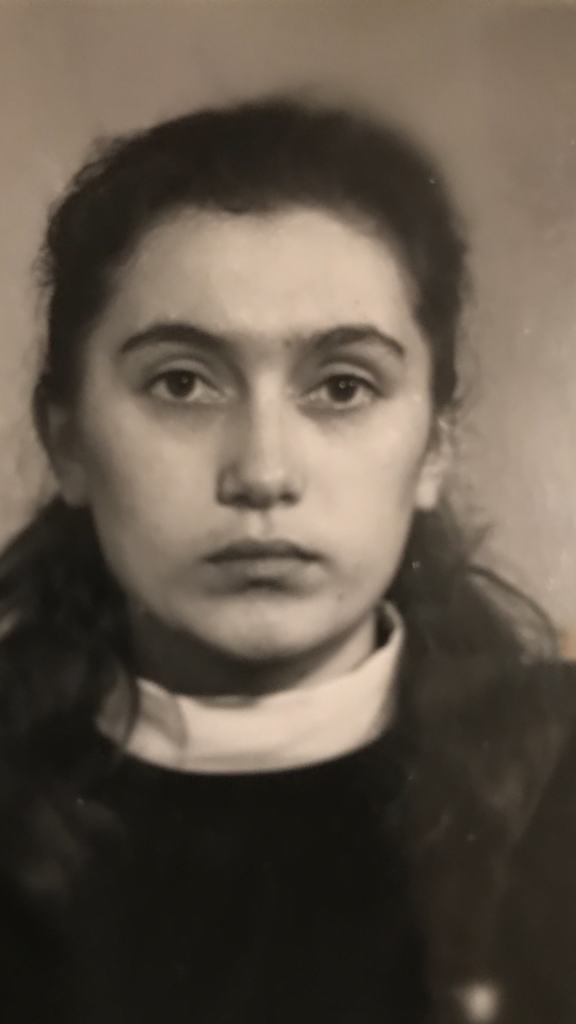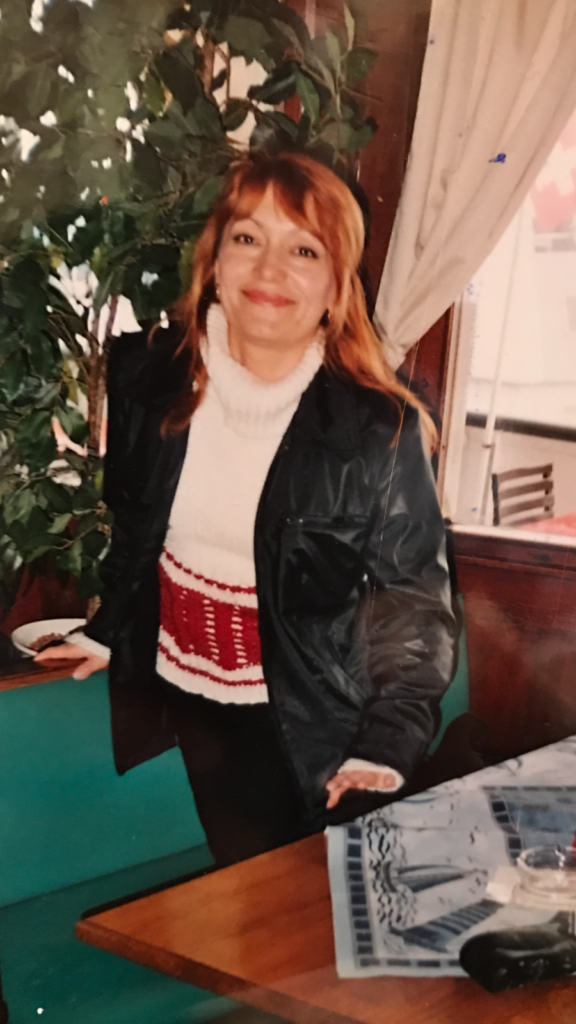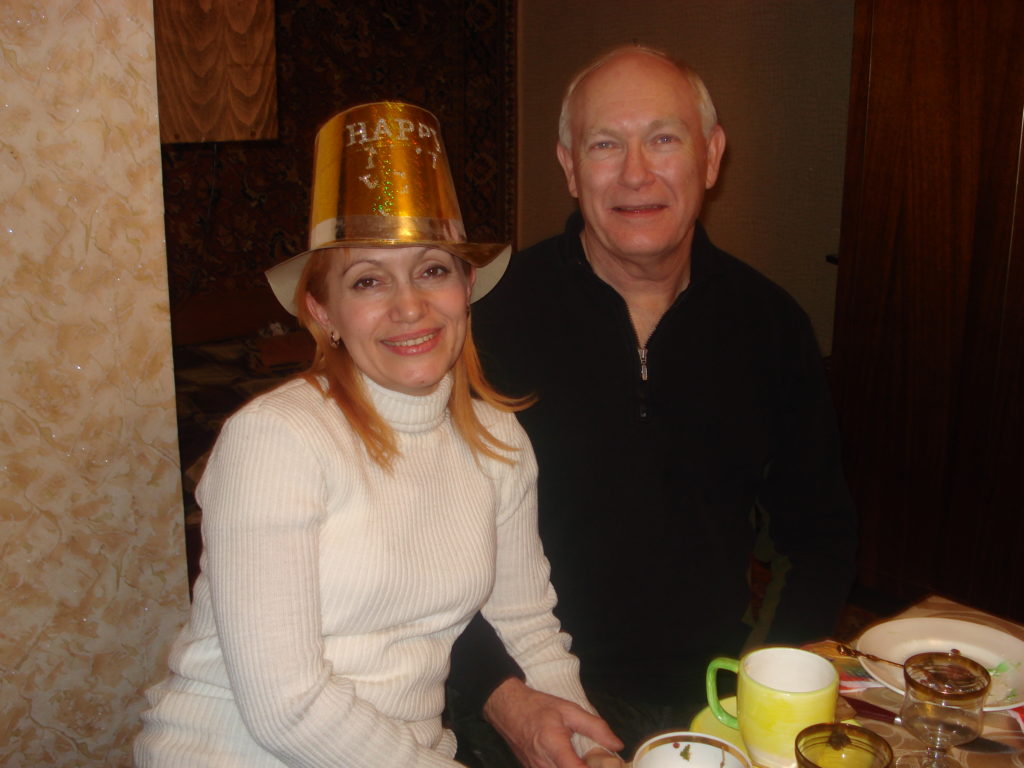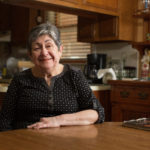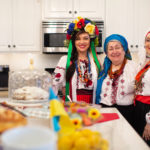Women do incredible things. This section features the stories of women who are a part of the Southeast Missouri community by way of living here, being from here or passing through. We hope these stories inspire you to connect with others and that they encourage you to be who you are in the world. We need you and your unique gifts.
This story was first published in two parts in the May and June 2020 issues of “The Best Years (TBY).”
Tatyana Lipskaya loves magazines.
On the surface, it may seem like an interest we take for granted. After all, magazines are readily available, and many people subscribe to them, enjoying flipping through the pages or reading from cover to cover. But for Tatyana, the impact magazines have had on her life goes deeper: magazines first led her to question the injustice she faced as a child growing up in poverty under Soviet rule in Ukraine. Later, they gave her the courage to hope for something better. This led her to America, to settle in Perryville, Missouri, and then in Cape Girardeau.
Her story goes like this: born in a village near the capital city of Kiev in 1963 while Ukraine was part of the Soviet Union, her family struggled to make ends meet. Tatyana recalls that as a child, she did not have shoes, did not have breakfast and often did not know if she would eat each day. She recalls one specific story when she was hungry: older children from the village collected goose feathers, made a fire and cooked the feathers. They gave them to the younger children to eat, telling them they were “fried feathers.” It had rained just before the children did this, and Tatyana’s mother did not have enough money to buy soap which was expensive, so she scrubbed the mud stains out of Tatyana’s clothes with rolls of grass.
“They had not even anything to feed us in the morning. No,” Tatyana recalls. “We just get up, going all day you eat or not, I don’t know. I did not remember if I ate during the day. … Everything was expensive. Everything was difficult.”
Tatyana says her parents did not work for money; rather, they were paid in food such as flour and sugar, but not meat. When they could afford to buy shoes for their children, they bought them too big so the kids could wear them longer as they grew into them. Because cameras were expensive, her family did not own a camera until Tatyana was around 15 years old; thus, she has only a couple of photos from her childhood. Because of this, photography, too, is an element of the magazines she does not take for granted.
Tatyana says she was “embarrassed” by her poverty and felt like “nothing,” “zero in this world,” a feeling further enforced by her classmates when they laughed at the patch her mother had sewn on the outside of her vest with white thread when she raised her hand one day in geography class. This incident was why Tatyana learned to sew and later became a designer with a Master of Fine Art in clothing design. Tatyana says she felt like only those with money were accepted within her society.
When Tatyana was four years old, her family moved to Crimea, Ukraine, where her father took a job as an engineer because the government was working to develop the city. Under Communism, “everybody was the same,” Tatyana says. It was here, however, that her family’s financial situation began to improve. Her parents were able to buy rubber boots for their children, her father was given a company car to drive even though hardly anyone had cars in the city, and they had “nice” floors in their house rather than the mud floors in Tatyana’s peers’ homes.
“I start to sound negative, but it’s how I was raised,” Tatyana says. “No information, no TV, no nothing, and only in Crimea when we came, we bought small TV and shoes, and [my parents] begin to have some money.”
It was here, too, that Tatyana first discovered magazines and books. To understand the privilege of books and magazines, it’s important to know that information was scarce within the Soviet Union. Tatyana says people were often busy working and therefore did not have time to pay attention to magazines. Additionally, there were no free magazines that people could take from public places, except for government fliers.
“In our country, magazines cost big, big money,” Tatyana recalls, saying that when making the choice, people had to spend their money on food rather than magazines. “Information was very expensive. Especially if they came from other countries to our Soviet Union.”
Tatyana found a way around this, however. Her school had a recycling program in which children went door-to-door to the more affluent homes of teachers and presidents of companies to ask for donations of materials such as metal and paper for recycling. The children turned in the materials they collected, and the school then kept the money from the recycling as funds for education. Tatyana enlisted her friend — a boy she says was in love with her — to help her take the magazines, newspapers and books that people gave to her to recycling. Because they didn’t have a bag to put the reading materials in, they hid them under their shirts until they could read them or hide them somewhere.
Through reading, Tatyana discovered there was a different way to live.
“I was like, ‘Wow, another world,’ and I thought, ‘Oh my goodness, I would like to be in this world. I don’t want to stay in this. I don’t want it, I don’t want it,’” Tatyana says. “Instead of complain[ing], I [cried]. Because my goodness, [I wondered], can it be different? Always I had this question to myself. I saw in the magazines [and wondered] why [do] people have this life? Why should I have this life? I did not ask my parents, I did not ask anybody, but I just [kept it] in my mind.”
Her mother did not like that Tatyana enjoyed reading because she needed Tatyana to be the caretaker of Tatyana’s younger sisters while she took care of the animals, gardened and did the rest of the work at their home. Tatyana’s father was a Communist and followed the rules of the Communist Party; this posed a problem for Tatyana’s reading, too. Afraid of her father’s and mother’s disapproval, Tatyana hid the books and magazines that she took from the recycling program. Her mother often found them while cleaning and threw them out.
After she was finished reading them, Tatyana cut pages from the books, magazines and newspapers into small strips, which she made into a journal. On these pages, she began writing what she wanted in her life and what she wanted to buy. First, her dream was to buy shoes — “normal” shoes, not ones made of rubber. When her parents bought her some, she marked off the dream. Next, she wanted a certain kind of skirt; when she received it, she again marked the dream out in her journal. She saw that as she wrote dreams down, they eventually became true. As this happened, she says she became more and more excited that perhaps she could escape the life of poverty she had always known.
By this time, Tatyana was a teenager, and even though she says there were fun things to do in Crimea and she learned a lot there with her parents through hard times, her dream was to move back to Kiev to be with her grandmother, to return to the area where she was born, with the seasons, geography and traditional culture she was familiar with. It was her grandmother, too, who had taken her to church even though it was forbidden under Communist rule. Tatyana says at this time, she did not even think about money, but rather just wanted to be back where things felt “normal.” After she finished school, she followed this dream and moved back to Kiev.
As she reflects on the dreams that have been fulfilled in her life, she thanks God.
“Many things in my life, I had answered,” Tatyana says. “Of course, I have more questions on my goal which I need to have answered, and I would like to have miracle, miracle, miracle, but this is God’s will, and I trust God. And I know if he promised to me, he will make it. … God will never show it to you, will never give you feeling about something if he will not finish this. He begin, and he finish.”
Adulthood
It was 2003, and Tatyana Lipskaya says the Ukrainian society had begun to be more open since the collapse of the Soviet Union, with people being able to choose what they wanted in regards to religion — unlike when the country was a part of the Soviet Union and they had to hide religious activity. It was during this time that she first thought of moving to America while attending a Bible study at her church. Her pastor asked the group about their vision for their lives; each person in the group talked about a European country they would like to move to. Tatyana, skeptical of these visions, off-handedly said she would like to move to America so that she would be accepted within the group. Rather than being happy for her, however, the group members began questioning her as to what she would do in America and why she wanted to go there. Because she did not feel accepted for who she was, she decided not to attend as regularly.
The Bible study was not the only place where she did not feel accepted, however. Although she was financially independent, had her education and was trained as a fashion designer, she did not feel accepted within her family and Ukrainian society, either. Her father told her she needed to get married; her mother wanted her to have more children in addition to Tatyana’s daughter. Although she prayed for a husband, she did not meet anyone she was interested in. She says she decided to forget about everyone else’s expectations and live her life.
Still, though, it was important to Tatyana to be accepted by the society she was a part of, and she thought about escaping to a different country and making a new life where no one knew her stories and she could have a fresh start. She looked to actress Julia Roberts in “Pretty Woman” and Russian actress Alla Pugacheva when she needed hope, perseverance and the grit to “pick myself up and go.” It was around this time that she found a book written by a woman who had moved to Germany from her native country. Tatyana reached out to the author to ask her advice about immigrating; the author encouraged her to do what she wanted and trust that everything would work out.
In addition, Tatyana says women who worked in the corrupt business world during this time in Ukraine were often taken advantage of, expected to give money or themselves in order to move up within a company. Tatyana refused to do this and was put on probation by her company; she quit in order to get away from that type of business culture.
She began to meet women who owned their own businesses, and asked them to teach her daughter, Anna, English to help her succeed in international settings. These women became Tatyana’s friends and talked her into letting them make a profile for her on a dating website. Although Tatyana was skeptical because she did not know English and did not necessarily want to meet anyone anymore, they translated for her on the website. The man who would become her husband, TG Missouri engineer Robert Cramer, sent her flowers, and she says she decided to try getting to know him so she would know “if he was what I needed or not.” They corresponded and talked on the phone; then, she invited him to visit her in Ukraine.
Still, she was wary. She wanted to be sure he would accept her as she was before she changed her entire life for him by moving to the U.S.; if he didn’t, she says she was comfortable with herself and would not need him in her life.
While he was visiting Ukraine, Tatyana says he impressed her with his character and the fact that he could provide for her. She began to trust him and asked God to show her if he was the right person. The first sign she received was that when she asked Robert about bringing her old dog to America, there was no question about it; of course her dog would be able to come. This was a relief to Tatyana because her father had suggested she put the dog down, a bit of advice to which she had refused to listen. Thus, she had been worried about the price of a plane ticket for her dog. Even though her dog who meant so much to her was able to move with her, as they started to plan the wedding, she still wondered if she was making the right decision, to leave her life behind for a new life in America. She prayed again.
“I said, ‘God, I cannot have vision. Help me, please. I need to see something material. I am materialistic; show me which I can touch,’” Tatyana recalls. “I need to touch if it’s mine or not, I need to feel it, and I asked God, ‘Will you show me something?’”
She found bright blue shoes that she wanted to wear at her wedding; she wanted bachelor buttons in her bouquet to match them. She asked God to help her find these flowers, which she says were very difficult and unrealistic to find in Ukraine. She and her future husband shopped all day for the specific flowers but didn’t find them; it was late, they were tired, and decided to go home. With doubts circling in her mind as to if getting married and moving her whole life was the right thing to do, they saw an older woman from the countryside selling flowers out of a basket at the metro station. They went over to look, and it turned out she was selling the exact flowers Tatyana had been looking for. They bought them all.
And yet, Tatyana’s doubts crept back in — “I am very, very particular,” she says. On the day of their wedding, she asked God for another sign, even though she knew her future husband was a good man, realized she was being very particular and thought that perhaps she shouldn’t ask for so many signs from God. Once again, she received a sign.
While planning the wedding before, her husband had asked her what he could get her as a gift for their wedding; she vaguely suggested jewelry. She did not, however, tell him anything about the ruby ring she had bought when she was around 20 years old, the first gold she bought herself. Her mother had suggested at the time buying “Something with ruby; it will save your life.” Tatyana had never shown this ring to Robert or told him that story.
Even so, the morning of their wedding, her husband presented her with a box, telling her it was from his mother and late brother who had wanted to give her a present. Inside, there was a necklace and earrings. They were ruby, and they matched her ring.
“For me, it was yes. Now I can say yes because God is showing me a sign,” Tatyana recalls. “I thought [before] I will not go anywhere from my country; I am comfortable. I’m comfortable with myself. I am not comfortable with people … and inside, I knew it. I knew I should not [stay in a society that didn’t accept me]. And it was difficult for me to be in that society because I was not part of that society. … I was different. And I wanted to be in society which they will accept me as I am.”
So, they got married, and Tatyana moved to Southeast Missouri with her husband. When she arrived, she was struck by all of the information and “beautiful” magazines that were “stocked everywhere.” She was also struck by the fact that people in positions of authority such as the immigration officer did their jobs without accepting bribes.
“Everywhere for women [in Ukraine] was very difficult,” she recalls. “But here when I came [and had the experience with the immigration officer who did her job without being bribed], it began to open America from other sides, like, ‘Wow, this country for girls, this country for rules.’ And yes, of course, you have some exceptions, but most of the people try to follow [the rules]. Because if you will not follow [the rules], no country. You will have not country anymore.”
Tatyana says here in America she has learned to not worry as much, has become more laid-back and feels accepted. She says she has been able to realize once again from her husband and American culture the importance of home and family, and that these things are peaceful and forever.
“You’re always welcome [at home]. This is [how it is] in America. I had this principle in my life, but somehow the Soviet Union style damaged Ukrainian style because Ukrainian people like tradition. Home, home, home. Home is safe, home is family. Home is everything,” Tatyana says of her traditional Ukrainian culture. “And Soviet Union like Communists and everything, they said, ‘It’s not important; church is not important.’ Everything was destroyed, everything. Now, nothing. So now we put all puzzles together, and only in America when I had this, I learned from people.”
Still, even with her happiness in America, Tatyana misses the village where she was born and wants to go back. She says it’s not something she plans to do, however, because of government corruption.
Despite the struggles she has faced, she is grateful.
“You become strong through difficulty. You cannot be strong if you have no difficulty,” Tatyana says. “But you never know until you already went through [difficulty, when] you have [the] experience. After all of this, you can look [back] like, ‘Oh, wow, I did this. I did this.’”
